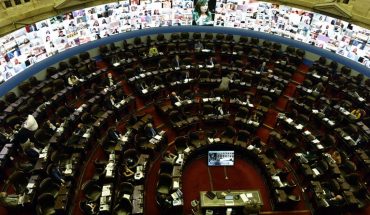
There is consensus in academia and politics of the benefits of quality parvular education. In recent years, the State has sought to take over by increasing its budget and, although it remains little in proportion to what is earmarked at the tertiary level, Chile was the fifth largest OECD country with the highest expenditure on education for children between 3 and 5 years as a percentage of GDP in 2017, advancing six places since 2013 , the year in which it was located in the eleventh place.
In school funding in general, evidence states that increasing spending is not enough to see an improvement in educational outcomes. It is necessary to add to the equation how they are used and distributed to the various relevant actors, in this case, to the parvular education establishments. In other words, it must be made clear how crucial it is to identify the best mechanism for distributing the budget to the thousands of children who require it, who, by 2020, were more than 770,000 infants.
This should be considered for the current debate on the bill seeking to establish a grant system for the average (2-4 year) levels of kindergarten education, specifically aimed at gardens operating via transfer of funds (VTF). These are managed by nonprofits, but receive state funding.
The main basis of the project is to end the budget gap between different types of gardens, where VTF establishments receive less than half as much subsidy per child as Junji Gardens. To this end, the Executive’s original initiative – launched in March 2019 – significantly increases the amounts delivered per child, and establishes a system consisting of four supplementary grants: base grant; rurality; vulnerability; and support for Special Educational Needs (SEN), a system that resembles the form of funding for today’s school education. To calculate total funding, an objective formula is applied that depends primarily on average attendance.
What’s the discussion? Opponents of the project are not only against subsidizing establishments on the basis of assistance, but also propose that the financing of the gardens affected by the regulations be through a centralized system, similar to the establishments that depend directly on Junji, in which much of the financial decisions have to go through this state body. This goes against the extensive school funding literature, which states that establishments must have a minimum level of independence to take care of their real needs, without having to go through the bureaucracy of a centralized system, where the institution making the decision – which in this case would be the Junji – is likely to have less knowledge of the cause.
As if that were not enough, a 2017 evaluation by the Directorate of Budgets (Dipres) to establishments that depend on Junji states that there is a serious problem of transparency and management control in them. As an example, the same document together with other related studies on the subject have had to estimate the money given to each student, since, under the current system, it is simply not possible to access that information.
It is entirely valid to discuss certain points of the project, but let us start with a higher level of debate, where outdated or poorly evaluated public policies globally have no place.
The content poured into this opinion column is the sole responsibility of its author, and does not necessarily reflect the editorial line or position of El Mostrador.





